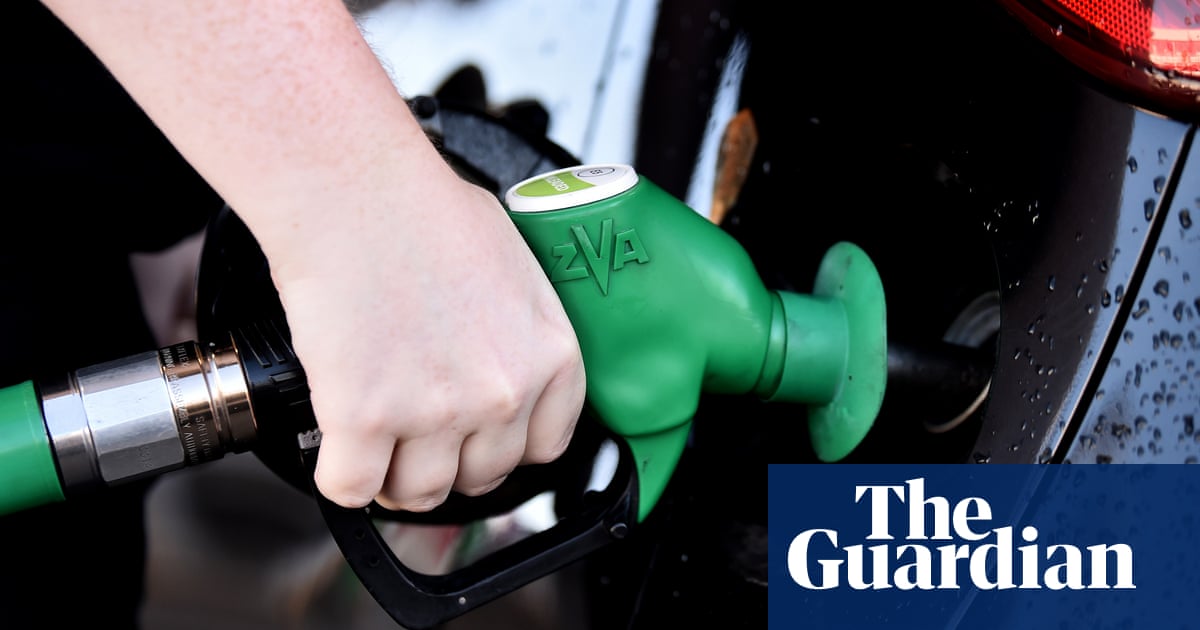UK motorists are still being overcharged for fuel, according to the competition watchdog, which said they paid £1.6bn more than they should have last year alone.
In its cost of living report, the Competition and Markets Authority (CMA) concluded that prices at the pump were still too high, and that the lack of proper competition among fuel retailers was “failing consumers”.
Retailers’ fuel margins, which are the difference between what a retailer pays for fuel compared with what is charged to drivers, are “still significantly above historic levels”, the report said, with margins at supermarkets roughly double what they were in 2019.
That meant motorists were paying £1.6bn more for petrol and diesel in 2023 when compared with margins in 2019, the CMA said – a £700m jump from the £900m in extra charges in 2022.
The CMA chief executive, Sarah Cardell, said the findings were “concerning” and that “high road fuel prices put pressure on households and businesses”.
The watchdog said it reinforced the need for a legally binding fuel finder scheme, which would give drivers access to live, station-by-station road fuel prices on satnavs, map apps or fuel finder apps.
Last year the CMA found that drivers were paying more for petrol and diesel than before the pandemic because of “weakened” competition. In January, the government announced plans to force fuel retailers to share near-live information on price changes at the pump to help drivers find the cheapest petrol and diesel.
But efforts to put those rules into law were scrapped during May’s pre-election wash-up: a period in the parliamentary process when legislation is swiftly pushed through before the country goes to the polls.
The RAC’s head of policy, Simon Williams, said: “To see that drivers have paid £1.6bn more than they should have in the last year is nothing short of outrageous, especially when so many are dependent on their vehicles. Drivers have every right to feel ripped off, especially knowing there is virtually no market competition between retailers.
“The CMA couldn’t be any clearer about what needs to happen,” Williams added. “We have already written to the new energy secretary, urging him to implement its recommendations as quickly as possible.
“This means greater transparency of fuel prices from all retailers and, most importantly of all, a price monitoring body that can take decisive action on retailers whenever drivers are overcharged. This can’t happen soon enough.”
The British Retail Consortium said its members would work with the regulator on fuel pricing. Its chief executive, Helen Dickinson, said: “Supermarkets remain focused on delivering the best overall value for their customers across all products that they sell, including food and petrol.
after newsletter promotion
“Retailers will continue to work closely with the CMA and provide the necessary data to allow consumers to find the best prices for petrol and diesel.”
The CMA’s findings on fuel were part of a wider study into whether supermarkets have been ramping up profits during a period of high inflation.
On Friday the regulator said its continued monitoring of supermarkets’ profit margins showed they had increased in the past year but remained “broadly at or below” 2020 levels.
Initial analysis of thousands of grocery prices indicated it was unlikely that supermarkets were artificially inflating the price of everyday goods to make the prices for loyalty card holders appear misleadingly attractive, the CMA said.
It will publish a full report on its findings in November and will provide an update in the autumn on pricing for baby formula, another key product that has been subject to high inflation.

